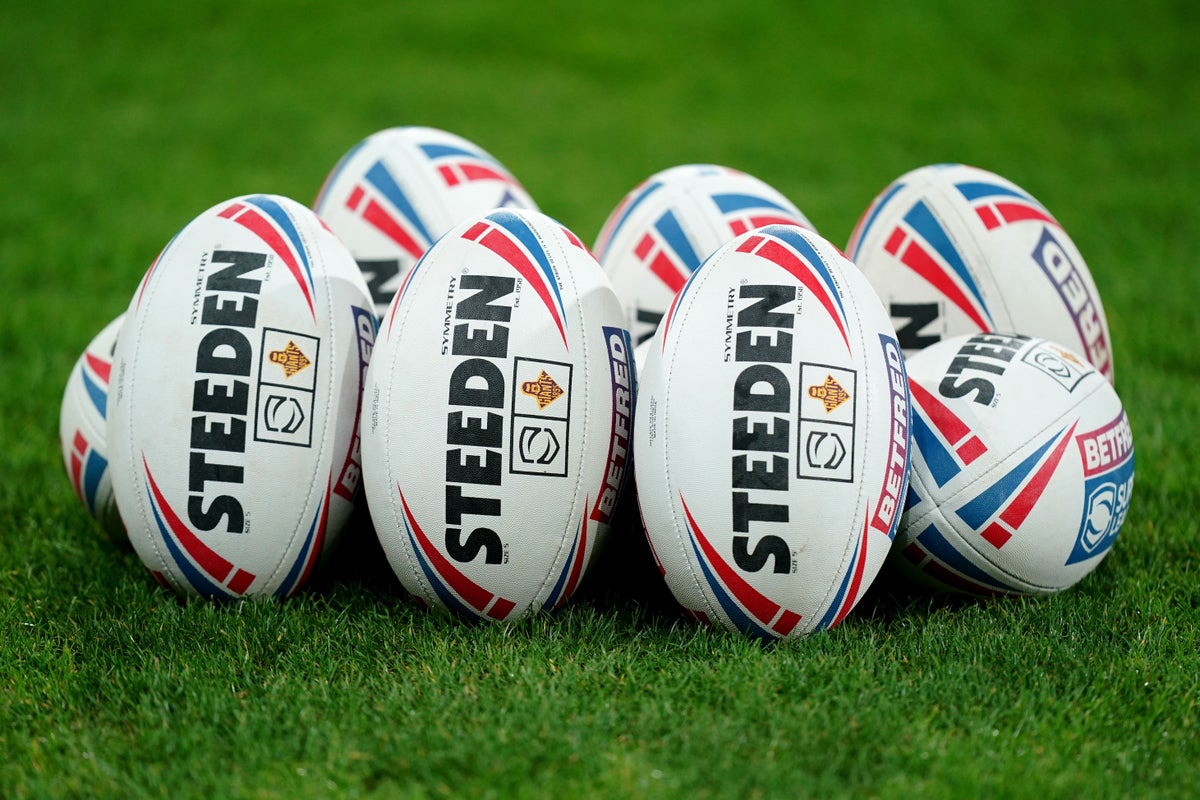
On-field performance will only count for a quarter of a team’s Super League destiny under a 20-point plan to ‘reimagine’ rugby league that was presented to clubs by sports media giant IMG in Huddersfield on Thursday.
Finances, ‘fandom’, stadium and catchment are the other four areas that will comprise the grading system that IMG hope will help ignite more and broader interest in the sport, and lead to greater investment and broadcast deals.
The proposals, which require a majority of the 38 senior domestic clubs to vote in favour next month, will see each handed A, B or C grades and placed accordingly from the start of the 2025 season onwards, at which point the automatic promotion and relegation system will be axed.
Those clubs achieving the top grade in the annually reviewed ratings will be either elevated to, or immune from relegation from, the top-flight, with the remaining places, including potential promotion from the Championship, designated according to the highest-ranking B grade sides.
The proposals continued to receive a cautious welcome from assembled officials, with the exception of second-tier Keighley Cougars, the only side to vote against the initial plan last October, whose co-owner Ryan O’Neill called Thursday’s developments “absolutely crazy”.
O’Neill and his partner Kaue Garcia distributed an 18-page brochure criticising the plan and detailing their reasons for retaining the automatic up-and-down model, and vowed to start an online petition in the hope of having the matter discussed in parliament.
“You’ve got to have PHD in astrophysics to understand the grading system they’ve put in place,” said an outraged O’Neill. “It’s absolutely crazy. What they’re creating is an elite cartel.
“They’re taking away the opportunity. Why would I work my guts off and throw my money into it for them to say well done Keighley, you’ve won the Championship but London, who finished sixth, are going up?”
Three of the five factors – performance, ‘fandom’, which covers physical attendance and digital engagement, and finances – will be prioritised, with five points attributed to each club in each category.
You've got to have PHD in astrophysics to understand the grading system they've put in place. It's absolutely crazy. What they're creating is an elite cartel.— Keighley co-owner Ryan O'Neill
The remaining two categories – stadium, which prioritises facilities and utilisation over ownership, and catchment, based on area population and the number of clubs in the surrounding area, will provide three and two points respectively.
Wakefield chairman John Minards, whose club appear in the most imminent danger of dropping out of the top-flight after a poor start to the current campaign, said he remained “broadly positive” about the proposals, while York owner Clint Goodchild said they had “a lot of logic”.
But Leeds Rhinos chief executive Gary Hetherington appeared to accept that a hypothetical situation, in which the second-tier champions were not promoted in favour of a club that finished the season lower down the table, would not be a good look for the sport.
“A lot more thought has to go into that,” admitted Hetherington, whose Rhinos look set to be one of a small handful in line for an A grade when the initial dummy rankings are released at the end of this season. “This is a recommendation caveated by the fact it is a work in progress.”
With the exception of Keighley, other lower-tier clubs appear willing to support the IMG project, and officials rejected O’Neill’s portrayal of a “closed shop”, insisting the plan will promote good practice by providing aspiring clubs with a clear pathway towards attaining an A licence.
Central to that pathway is the strong belief, articulated by Rhodri Jones, the managing director of Rugby League Commercial, that the sport must seize the opportunity to incorporate off-field factors within the promotion and relegation model.
“We’re not saying there isn’t movement between the leagues, but what we have to avoid is a situation like six of the last seven seasons in which the promoted teams have all gone straight back to the Championship,” said Jones.
“What this grading process is going to do is still reflect on-field performance, but also you have to be good or better in other areas that provide a sporting entertainment landscape.
“We could carry on doing promotion and relegation and still end up in the same position in three years, and everyone will look around and ask what’s changed. This is our attempt to do something different, without taking it away in totality.”







